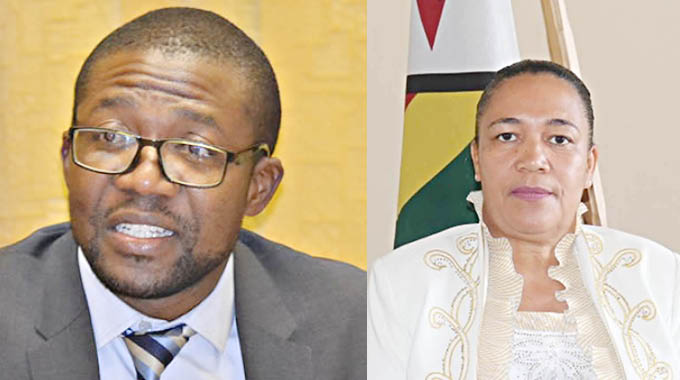EDITORIAL COMMENT: Now that austerity is over, let’s focus on productivity

THE Minister of Finance and Economic Development, Professor Mthuli Ncube, is not a magician, neither is he the panacea to all the problems facing Zimbabwe but he has achieved a lot since his appointment.
Faced with a near comatose economy weighed down by years of mismanagement, Prof Ncube has stabilised the ship through his Transitional Stabilisation Programme and stands on the cusp of steering the country’s economy on a positive trajectory as he and his team at Treasury embark on the second phase of Vision 2030. By and large, the TSP has managed to lay the groundwork for the take-off of the Zimbabwean economy with the country now poised for a growth spurt in the first half of 2020.
Global lenders such as the International Monetary Fund are impressed with officials from the Bretton Woods institution marveling at the sheer pace of economic reforms Zimbabwe has implemented without external support. Granted, it has been a tough two years for the ordinary Zimbabwean but the country had no choice but to go through the painful prescription which has now stabilised the turbulent ship in readiness for a smoother ride ahead.
Going forward, Treasury has assured the nation that there will be no more shocks in 2020 as the era of austerity is over with most of its targets attained. Currency reforms during which the Zimbabwe dollar has been re-introduced were the last major step of the TSP.
Prof Ncube presents his much anticipated national budget on Thursday next week content that his allocations will spur economic growth building on the foundation laid by the TSP. His budget is projected to be stimulatory in nature with focus on enhancing productivity, growth, competitiveness and job creation.
Prof Ncube is likely to devote most of the funds to agriculture – the mainstay of the economy and anchor for industrial growth. With meteorologists forecasting a normal rainy season, Zimbabwean farmers need to start putting shoulders to the wheel so that they are not found wanting. Government has shifted from Command Agriculture to smart partnerships whereby farmers will be provided with guarantees by Government to secure loans from banks.
This will deal with the issue of non-performing loans while enhancing productivity since farmers will now be liable for their own debts and accountable to their partners. So far 60 percent of irrigation farmers have been contracted for the forthcoming season and this is encouraging.
The Presidential Inputs Scheme will continue to cater for smallholder farmers but those on the A2 model need to wean themselves from Government support and these are the ones targeted under the Smart Agriculture model. As agriculture acts as the fulcrum of the economy, industries should gradually rebound but they need access to cheap loans to retool.
Prof Ncube is likely to unveil measures aimed at stimulating productivity in industry among them incentives and Government guarantees for local companies to access credit in foreign banks. There will also be support measures for the mining and tourism sectors which have anchored the economy over the past few years.
With inflation already showing signs of slowing down, we expect prices to also follow suit as the economy self-corrects. But the provision of social safety nets is likely to continue as wages/salaries have been eroded. So BEAM, silo shops, grants and grain allocation in both rural and urban centres will stay. More Zupco buses are on the way with Government set to contract more kombis under the scheme to cushion people from exorbitant costs of transport.
On workers who are bearing the brunt of economic reforms, we envisage massive tax rebates and a widening of the tax free bands to increase disposable incomes. Government is also likely to keep the two percent tax on electronic transactions since it is a major source of income. This together with funds freed up by the removal of subsidies on fuel and electricity will see Government maintaining a budget surplus which is crucial for macroeconomic stability.
On outlook, we project a steady growth of the economy in the first half of 2020 underpinned by a better agricultural season. With the major fundamentals in place thanks to the TSP, we urge Zimbabweans to start focusing on growing the economy. Industries should take advantage of measures set to be announced in the national budget to retool and grow their exports. Farmers should ensure that they are ready when the first rains come so that they maximise yields.
We need to export more to generate foreign currency. We also expect more foreign direct investment premised on the improved investment climate brought about by the robust re-engagement policy and the ease of doing business reforms.
President Mnangagwa has said Government has put in place clear frameworks to transform, industrialise and modernise the economy towards the speedy attainment of an upper middle income status by 2030. Let’s support this vision and make it a reality.











Comments